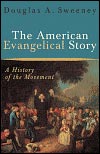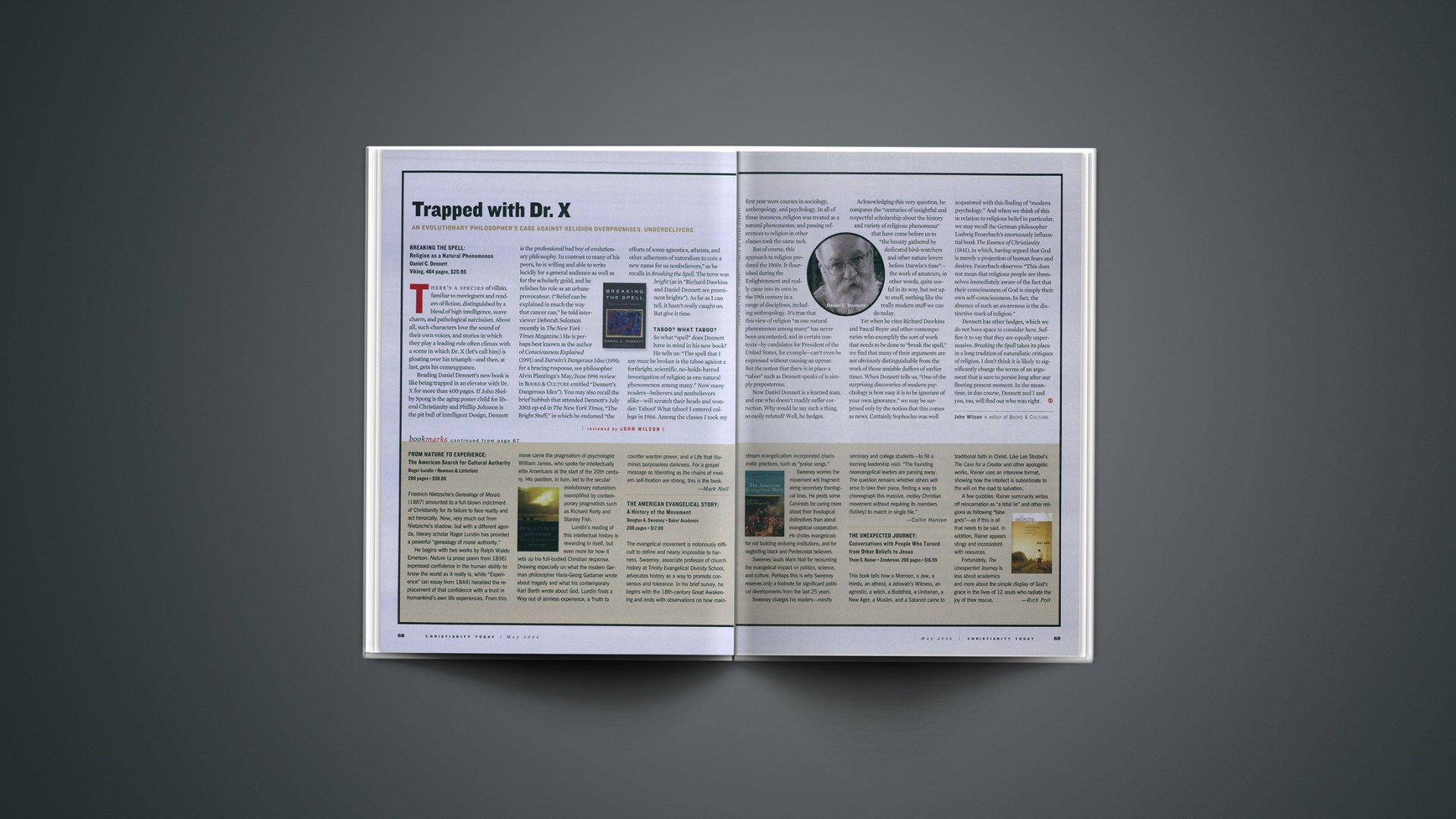The evangelical movement is notoriously difficult to define and nearly impossible to harness. Sweeney, associate professor of church history at Trinity Evangelical Divinity School, advocates history as a way to promote consensus and tolerance. In his brief survey, he begins with the 18th-century Great Awakening and ends with observations on how mainstream evangelicalism incorporated charismatic practices, such as “praise songs.”
 The AmericanEvangelical Story:A History ofthe Movementby Douglas A. Sweeney Baker Academic208 pp.; $17.99 |
Sweeney worries the movement will fragment along secondary theological lines. He prods some Calvinists for caring more about their theological distinctives than about evangelical cooperation. He chides evangelicals for not building enduring institutions, and for neglecting black and Pentecostal believers.
Sweeney lauds Mark Noll for recounting the evangelical impact on politics, science, and culture. Perhaps this is why Sweeney reserves only a footnote for significant political developments from the last 25 years.
Sweeney charges his readers—mostly seminary and college students—to fill a looming leadership void: “The founding neoevangelical leaders are passing away.
The question remains whether others will arise to take their place, finding a way to choreograph this massive, motley Christian movement without requiring its members (futilely) to march in single file.”
Copyright © 2006 Christianity Today. Click for reprint information.
Related Elsewhere:
The American Evangelical Story is available from Christianbook.com and other book retailers.
More about Douglas Sweeney is available from his page at Trinity Evangelical Divinity School.
More information is available from Baker Academic.
For book lovers, our 2005 CT book awards are available online, along with our book awards for 2004, 2003, 2002, 2001, 2000, 1999, 1998, and 1997, as well as our Books of the Twentieth Century. For other coverage or reviews, see our Books archive and the weekly Books & Culture Corner.










